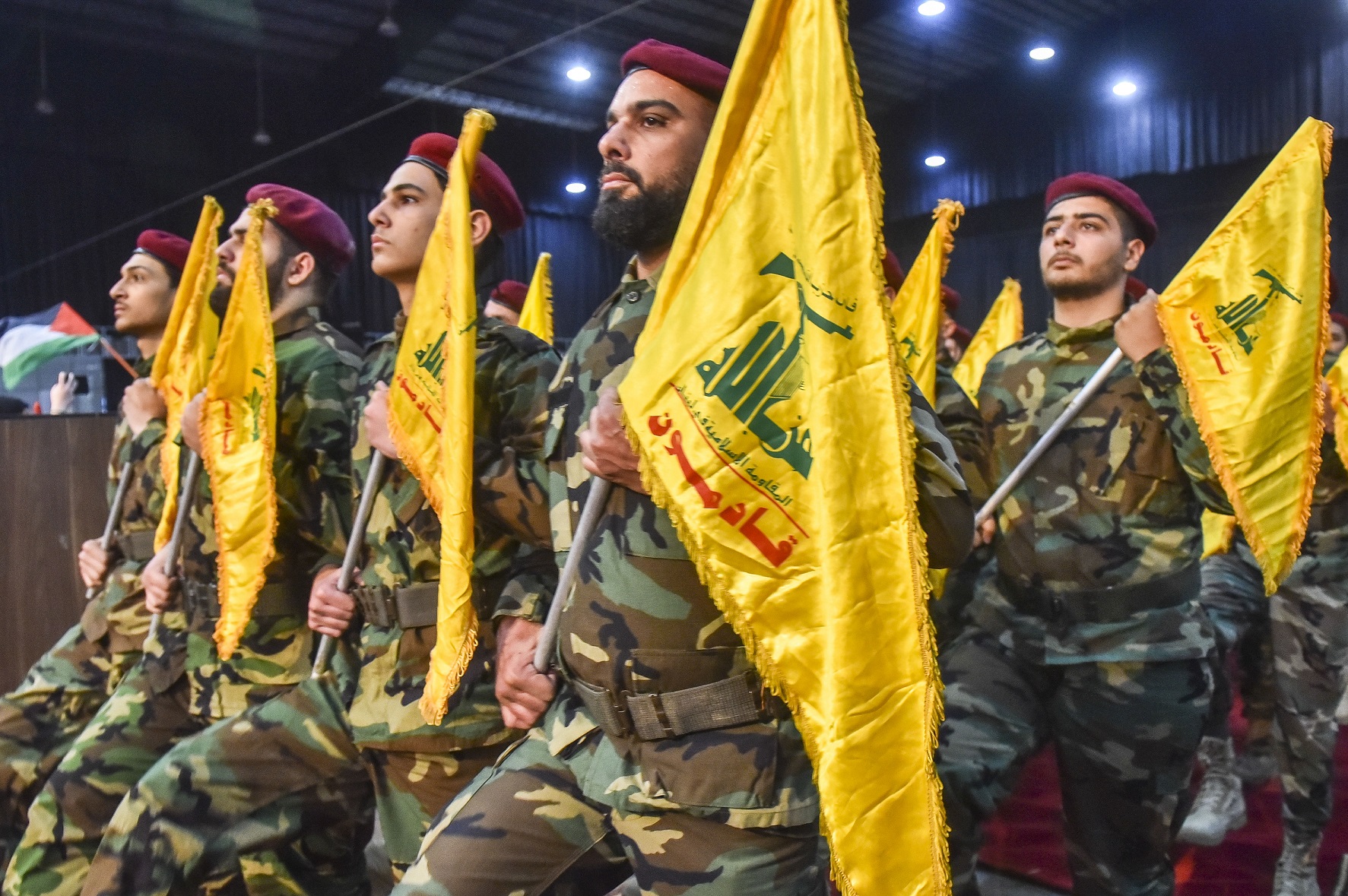Publications
Policy Paper, July 2, 2023

Israel must use every possible means to remove the Hezbollah tents at Har Dov. The political process should be fully exhausted, but limited in time. If it fails, Israel should take action to remove the tents, even at the price of risking a deterioration into a limited conflict on the ground.
Background
In the middle of June 2023, following a leak from a discussion at the Foreign Affairs and Defense Committee, the Israeli media reported that two tents manned by Hezbollah personnel were situated close to Mt. Dov. The tents were positioned on the Israeli side of the Blue Line (demarcated by the UN in 2000 as the border line between Israel and Lebanon and adopted by Israel), that is, within the sovereign territory of the State of Israel. For its part, Hezbollah disputes this picture: it does not recognize the Blue Line and claims that this area is part of Lebanon (even though in 1967 it was captured from Syria). The erection of the tents did not go unnoticed by the IDF, but Israel decided in the first stage not to take action to remove the tents by force, but rather to use diplomatic channels. In this framework, an appeal was made to the UN and the United States to convey messages to the Lebanese side to take action itself to remove the tents.
Significance
Hezbollah’s erection of the tents and its determination not to remove them reflect a recent rise in the organization’s confidence and is increased boldness vis-à-vis Israel, along with a willingness to take risks. Incidents from the last few months reflect this clearly: Hezbollah's ultimatum on the issue of the Karish gas field, the terrorist attack at Megiddo Junction by a Palestinian attacker who infiltrated from the northern border (March 13), and the rocket fire from Lebanon (April 6), which while carried out by Palestinian elements, was likely prepared and used an infrastructure with Hezbollah's knowledge. At the same time, an increase has been evident in the presence of Hezbollah operatives and their willingness to create friction with the IDF along the border.
Hezbollah's Motivations
It seems that Hezbollah is spurred by its mistaken understanding that the internal difficulties in Israel since the establishment of the current government reflect weakness, and that Israel does not have an interest at the current time in conducting a campaign against it. In our understanding, Hezbollah is also not interested in a large-scale military campaign but interprets the developments as an opportunity for it to improve the balance of deterrence against the IDF and to expand its presence in southern Lebanon and its grip on the border. Hezbollah is relying on an Israeli interest in containing the incidents and preventing a large-scale deterioration, and therefore is not concerned about friction. Even if the erection of the tents began as a mistake on the part of operatives on the ground who were not aware of the location of the Blue Line (i.e., the border), their continued presence and the expansion from one tent to two help Hezbollah to improve its standing as the "defender of Lebanon" vis-à-vis the Lebanese public and demonstrate its importance for Iran and its central role as part of the "axis of resistance" against Israel.
Conclusion
We are in a process of the erosion of Israeli deterrence toward Hezbollah. The organization acts more boldly and blatantly than in the past. The ongoing process of Hezbollah's force buildup and the perception that IDF activity deliberately avoids friction with the organization have led to a serious strategic situation, a state of overconfidence that could lead to escalation. Whether Hezbollah is acting out of desperation given the difficult situation in Lebanon and seeks to justify its existence, or whether it is acting out of hubris and arrogant audacity, the trend is dangerous, and it must be stopped.
Recommendations
- From Israel's perspective, in the current circumstances, it is very important not to play into Hezbollah's hands. Israel must use every possible means to remove the Hezbollah tents at Har Dov, and for two main reasons. On the ground, Israel must stop Hezbollah's efforts to expand its presence next to the border. Hezbollah is trying gradually to create a new reality, while penetrating into Israel's sovereign territory – a situation that Israel cannot accept. On the strategic level, Israel must demonstrate force and determination in order to improve the balance of deterrence versus Hezbollah in Israel's favor, after it has eroded recently.
- Israel acted correctly in first turning to diplomatic channels to expose Hezbollah’s actions, which blatantly and consistently violate Security Council Resolution 1701. Israel should fully exhaust the diplomatic process but place a time limit on it; earn international recognition and support for its position and its demands to dismantle the tents, which were erected in its territory; and establish legitimacy for the possibility of Israeli action to remove the tents.
- Assuming that after the exposure of the incident the chances of a successful diplomatic process are slim, Israel should take action to remove the tents, even at the price of deterioration into a limited conflict on the ground. The method of removal and operational means should combine deception on one hand but also determination and demonstration of power that exceeds Hezbollah's expectations.


